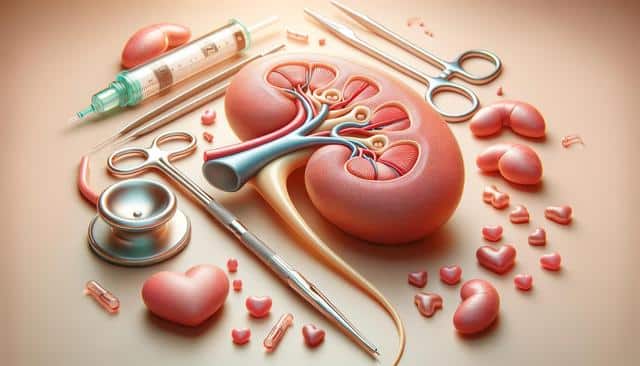
A Helpful Guide to the Kidney Donation Process and Who May Be Eligible
Understanding Kidney Donation
Kidney donation is a life-altering process that allows individuals to contribute significantly to someone else’s life by offering a solution to end-stage kidney disease. In the donation process, a donor provides a kidney to a recipient who has been identified as needing a transplant due to renal failure. This act of giving not only provides the recipient with a new lease on life but also reduces their dependency on dialysis, a time-consuming treatment that only partially substitutes kidney function. The benefits of kidney donation are immense, and the procedure has been refined over the years to ensure safety for both donors and recipients. It is crucial to understand that kidney donation can be either directed, where the donor specifies the recipient, or non-directed, where the kidney is given to the next suitable candidate on the transplant list.
Eligibility for Donors
Individuals considering kidney donation must meet specific eligibility criteria to ensure a safe and successful transplant. While many people are potential candidates, the following factors are generally considered:
- Age: Potential donors typically range between 18 to 70 years old, ensuring they are legally able to consent and physically able to undergo surgery.
- Health: Donors must be in good physical and mental health. They should not have any pre-existing conditions like diabetes, uncontrolled hypertension, or active infections that could complicate the donation process.
- Psychosocial Assessment: A thorough evaluation of the donor’s psychological health ensures they are emotionally prepared for the donation and understand the risks involved.
These eligibility criteria are in place to protect the donor’s health and ensure that the kidney provided will be a viable option for the recipient.
Steps in the Donation Process
The kidney donation process involves several coordinated steps, starting with an initial evaluation and ending with post-surgical care. Here’s a detailed look:
- Initial Screening: Prospective donors undergo a series of medical tests, including blood work and imaging, to ensure compatibility with the recipient.
- Comprehensive Evaluation: This includes psychological assessments, lifestyle evaluations, and kidney function tests to confirm the donor is suitable for surgery.
- Consent and Surgery: Once cleared, donors provide informed consent before undergoing surgery, which typically involves removing the kidney laparoscopically.
- Recovery: Post-surgery, donors are monitored closely during recovery, which typically spans over a few weeks, allowing them to gradually return to their daily activities.
Throughout the process, healthcare teams provide extensive support to ensure the well-being of the donor.
Myths and Facts About Kidney Donation
There are many misconceptions surrounding kidney donation, which can deter individuals from considering this noble act. Here are some common myths and the truths behind them:
- Myth: Donors will have a shorter lifespan. Fact: Studies have shown that donors enjoy a normal lifespan and do not have an increased risk of kidney disease.
- Myth: The surgery is extremely dangerous. Fact: While all surgeries carry risks, kidney donation is considered safe with advancements in medical techniques reducing complications significantly.
- Myth: Donors will face severe lifestyle restrictions. Fact: Most donors resume normal activities post-recovery and do not face significant lifestyle changes.
Understanding these facts can help alleviate concerns and encourage more individuals to consider kidney donation.
Conclusion: The Impact of Kidney Donation
Deciding to become a kidney donor is a powerful choice that embodies selflessness and compassion. By undergoing this process, donors make a substantial difference, not just for the recipient but also for their families, offering hope and a chance at a healthier life. As the demand for kidneys continues to exceed supply, every donation counts and is deeply valued. If you’re contemplating this decision, consider speaking with medical professionals for comprehensive guidance and support. Kidney donation is more than just a medical procedure; it is a testament to human kindness and generosity.